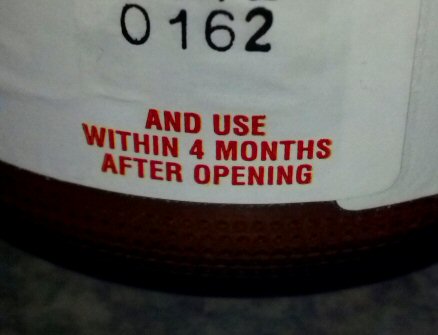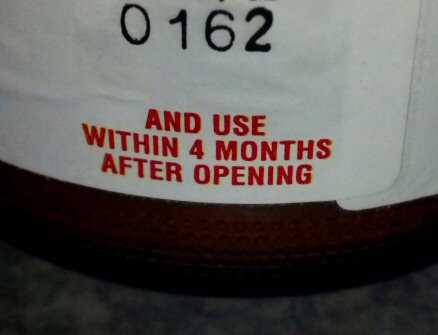I have had this dry yeast in a glass jar. I was baking a lot of pizzas before summer came. I don't bake at all in summer, due to the heat. I started baking about two weeks ago the first time in the fall, the dough for the break did not rise much, and it felt funny after it rose. I thought that I did not make the dough well. Yesterday I made my pizza. The dough did not rise well, and again it felt funny and gluey just like the one two weeks ago.
The funny thing is that I only did not constantly use the yeast for 3 months or less, and the yeast is not even expired yet. I have always kept it in the frige. Thus, I don't understand why the yeast did what it did.
The funny thing is that I only did not constantly use the yeast for 3 months or less, and the yeast is not even expired yet. I have always kept it in the frige. Thus, I don't understand why the yeast did what it did.



